Film exposes Poland’s embrace of North Korean orphans
By Korea HeraldPublished : Oct. 31, 2016 - 19:05
During the 1950-53 Korean War, around 2,000 North Korean orphans settled in Poland, then a communist ally in the Warsaw Pact, through a covert arrangement of socialist care and schooling.
Some 1,270 of them went to the tranquil forested village of Plakowice in the southwest, where from 1951 to 1959 they lived under the nurturing eyes of 300 Polish teachers.
Living off their humane guardianship, the children came to learn the Polish language and found a second home in the fledgling socialist society, an experience they would think back on for a lifetime after being hauled back to North Korea in 1959.
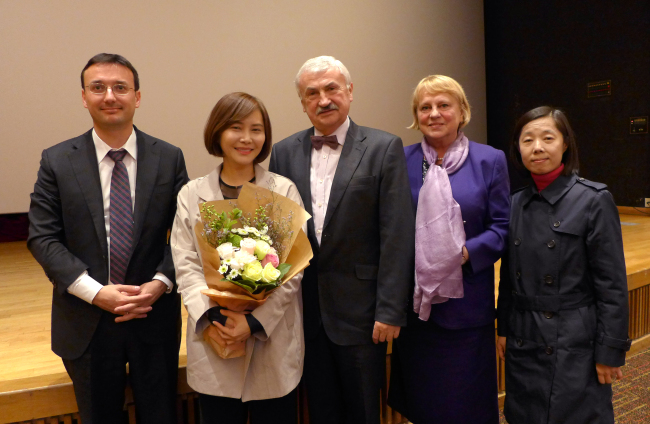
Documentary film “Kim Ki Dok” (2006), by Polish director Jolanta Krysowata, captured these years at the orphanage, where the children and teachers developed bonds that became forever ingrained in their memories.
Now Korean actress and filmmaker Chu Sang-mi is preparing both a similar documentary and a movie inspired by the events, with North Korean defectors acting in the film. She went to Poland this year for preliminary research.
“Humanitarianism is a word of choice these days, in an age of material abundance, but it was a humane instinct for the Poles,” Chu said at a screening of the Polish documentary as part of a European film festival on migrants in European cities at the Seoul Museum of History last week.
“The school principal I interviewed said, ‘Some of our teachers were orphans and lost families. I fought in the Second World War and killed many people. We all had our scars and traumas. So we knew exactly what these children needed and couldn’t help but become their parents.’”
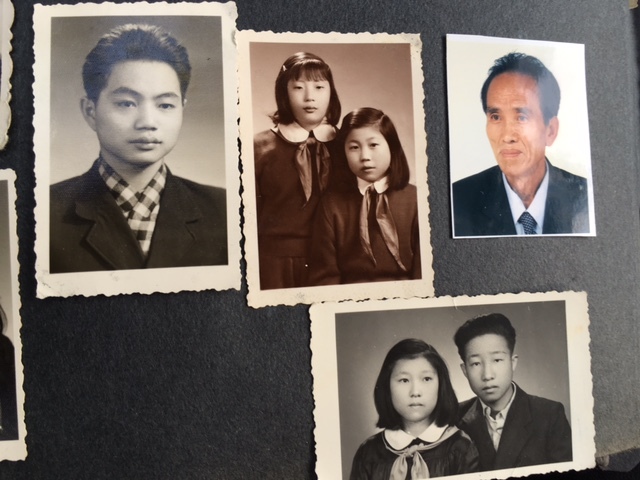
The Korean War produced more than 100,000 orphans in North Korea, some of whom were dispersed across the Eastern bloc countries of Poland, Romania, Hungary and what were then Czechoslovakia and East Germany. Poland, which had been historically surrounded by military powers and constantly invaded, has always been open to outsiders and embraced them, according to Chu.
The program was cloaked strictly from the public eye, as Poland itself was moving out of poverty following the wake of destruction of the World War II. The North Korean supervisors who accompanied the orphans instructed Polish teachers “not to give love or sweets,” fearing it might slacken their still-forming character.
“But the teachers loved their students like their sons and daughters and hugged and kissed them,” the movie director said.
Deceased North Korean leader Kim Il-sung instructed the foundlings to “study well, work hard and learn a lot” in Poland, so that they could one day come back to rebuild their homeland, one teacher recalled in the film.
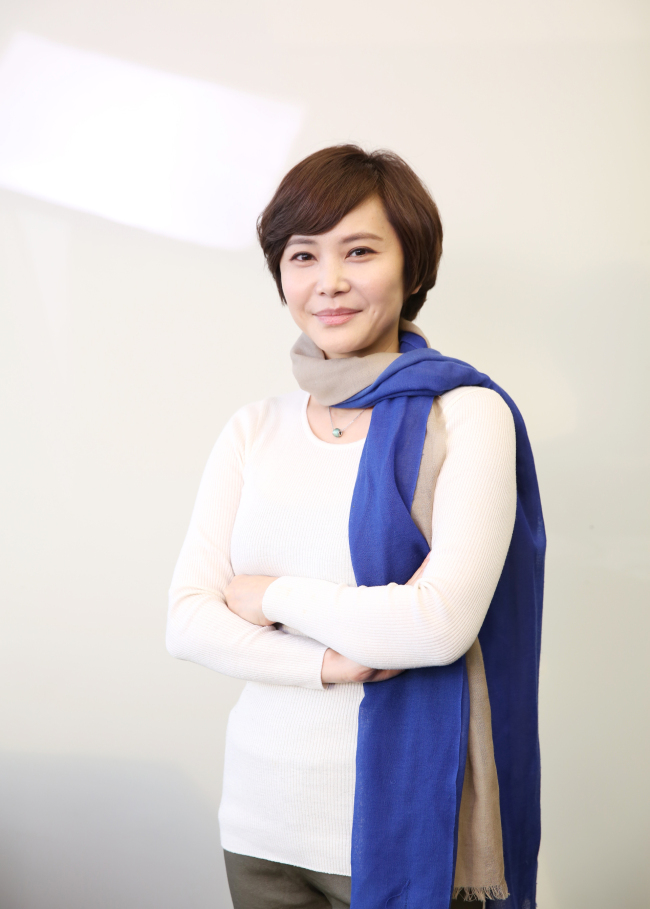
The documentary’s title comes from the name of a 13-year-old girl, who contracted leukemia and died in surgery. Her grave near the orphanage -- a rehabilitative center for Polish children suffering from epilepsy, mental disorders and physical disabilities today -- bears her name and became a source of inspiration for Krysowata.
“I heard Ki-dok was a precocious child,” Chu said, adding that her doctor, in a desperate attempt to save her life, defied his superiors’ orders to give endless blood transfusions.
Most orphans, having eaten mice and other unhygienic food in North Korea, had two or three parasites in their bodies, but there was a severe lack of proper medicine.
In 1959, an order came from Pyongyang to return the children home, and they left together. The orphans and teachers maintained correspondence through letters for two years through 1961, when news stopped coming from North Korea, for reasons unknown.
“One child I heard was close friends with the children of the school principal, and persistently wrote to the headmaster to bring him back to hire him as a servant,” Chu said. “The dean, crying during the interview, told me that he wrote to the child, once and for all, to quit his dream and live his life in North Korea. Despite his rebuff, the letters continued to arrive with the same message.”
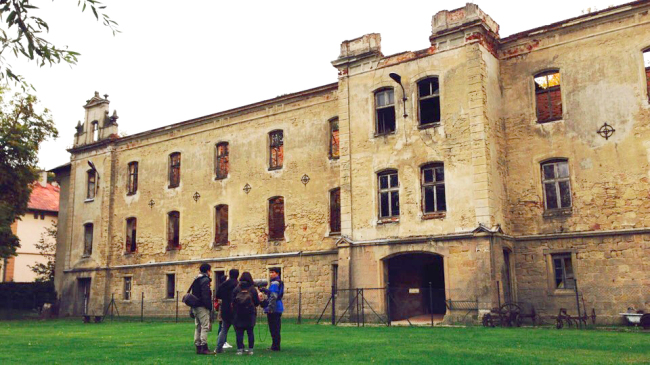
Chu, who is conceiving a story of North Korean defectors meeting the Polish teachers, told The Korea Herald there are “serious problems” with the way South Korean society has treated defectors, who risked their lives to escape North Korea.
Noting that many defectors have committed suicide or failed to integrate successfully here, she said, “The problem for the defectors is more in their hearts than in their pockets or diplomas.”
She added that many of them have families back in North Korea, and feel desolate, outcast and estranged in South Korea.
Asserting the South Korean government has focused its support on the “outward” aspects of employment and education, Chu contended their “inner” healing is vital to long-lasting settlement and integration.
“Poland, much like Korea, has a tumultuous history of being downtrodden and invaded,” she said. “But there is an endless stream of movies, arts and discussions that critically examine the country’s culture and history. Culture and the arts being a nation’s spirit, I think Poland’s approach delivers a poignant message today, particularly as anti-immigrant sentiments are sweeping across Europe.”
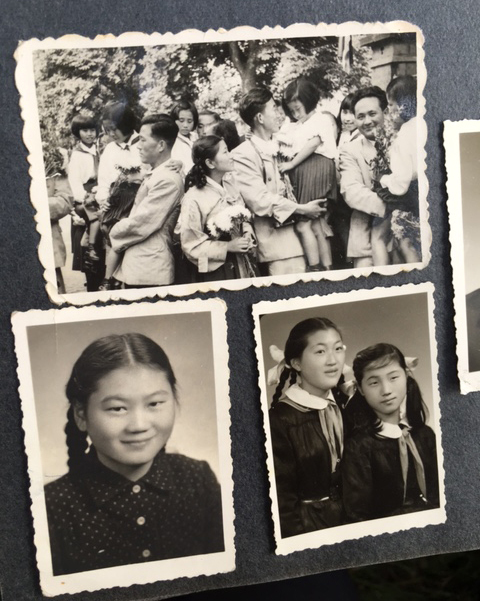
Polish Ambassador to Korea Krzysztof Ignacy Majka said in an interview that the film presented “an interesting fragment” of the two countries’ earlier histories.
“The film is set in 1953, only a few years after the end of the Second World War, which completely devastated Poland. Cities were destroyed and people were suffering. But it was possible to share the love and resources with others. It is a very touching story that deeply penetrates our feelings,” he said.
Due to Poland’s turbulent history, the older generations of Poles easily sympathized with the orphans’ ordeals, the envoy explained, adding that the Roman Catholic religion also inspired their humanitarian actions.
The Central European nation has an embassy in Pyongyang and previously carried out humanitarian projects in North Korea, including the operation of two hospitals near the capital. But following international sanctions in the aftermath of the North’s fourth and fifth nuclear tests this year, relations became strained with no bilateral trade, according to the diplomat.
“We maintain our relations despite the current difficult situation, in a diplomatic language, to keep the door open in case things get better,” he said. “When conditions improve, Poland can educate and help North Korea transform into a vibrant democracy and market economy as we have done since 1989.”
By Joel Lee (joel@heraldcorp.com)
-
Articles by Korea Herald







![[Graphic News] More Koreans say they plan long-distance trips this year](http://res.heraldm.com/phpwas/restmb_idxmake.php?idx=644&simg=/content/image/2024/04/17/20240417050828_0.gif&u=)
![[KH Explains] Hyundai's full hybrid edge to pay off amid slow transition to pure EVs](http://res.heraldm.com/phpwas/restmb_idxmake.php?idx=644&simg=/content/image/2024/04/18/20240418050645_0.jpg&u=20240419100350)








![[KH Explains] Hyundai's full hybrid edge to pay off amid slow transition to pure EVs](http://res.heraldm.com/phpwas/restmb_idxmake.php?idx=652&simg=/content/image/2024/04/18/20240418050645_0.jpg&u=20240419100350)

![[Today’s K-pop] Illit drops debut single remix](http://res.heraldm.com/phpwas/restmb_idxmake.php?idx=642&simg=/content/image/2024/04/19/20240419050612_0.jpg&u=)